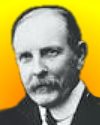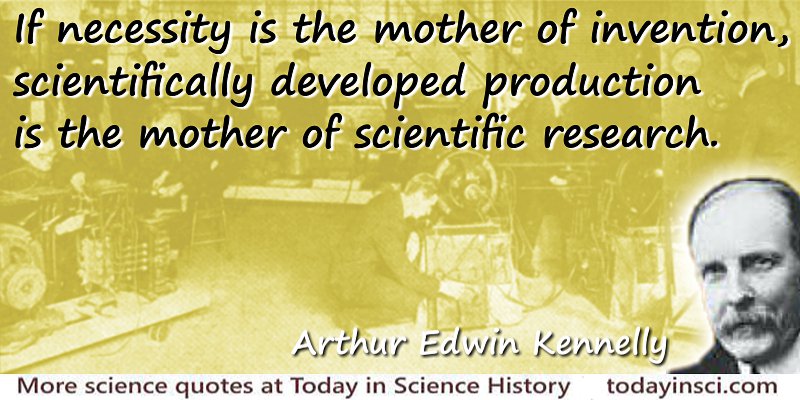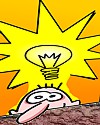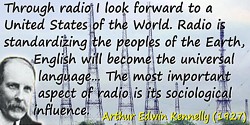 (source)
(source)
|
Arthur Edwin Kennelly
(17 Dec 1861 - 18 Jun 1939)
Irish-American electrical engineer who made innovations in analytic methods in electronics, and co-discovered the radio reflecting properties of the ionosphere in the upper atmosphere.
|
Arthur Edwin Kennelly
“Scientifically developed production is the mother of scientific research”
Illustrated Quote - Large (800 x 600 px)
More Arthur Edwin Kennelly quotes on science >>
Dr. A.E. Kennelly contributed frequently to Electrical World. In 1920, shortly after the end of hostilities in the Great War (World War I), he wrote about the state of education in the engineering schools of the U.S. He regarded the response to the “after-burden of the conflict” was to place a greater emphasis on the role of engineering in increasing production or productiveness. During the war, applied science or engineering was of the greatest importance in the development, manufacture, test and transportation of the needs of the modern military.
The war produced a very great demand for technically trained men, but their availability was far below the need. With the return of peace, Kennelly indicated that a greater emphasis needed to be placed on providing a significant number of the technically trained graduates with additional industrial research study, with the schools co-operating with large factories in the teaching. He concluded:
Theory and practice originally started without mutual recognition. Then they came to a bowing acquaintance. Already they have reached the stage of good understanding. In time they will probably become inseparable friends. Instead of scientific research being set up merely at the instigation of theory, it is coming to be recognized that from practice comes the most urgent demand for its rapid development.
If necessity is the mother of invention, scientifically developed production is the mother of scientific research.
- Science Quotes by Arthur Edwin Kennelly.
- 17 Dec - short biography, births, deaths and events on date of Kennelly's birth.
- Arthur Kennelly, Electrical Engineer - Biography.
- Arthur Edwin Kennelly - context of quote “Through radio I look forward to a United States of the World” - Medium image (500 x 250 px)
- Arthur Edwin Kennelly - context of quote “Through radio I look forward to a United States of the World” - Large image (800 x 400 px)
- Arthur Edwin Kennelly - context of quote “Scientifically developed production is the mother of scientific research” - Medium image (500 x 350 px)







